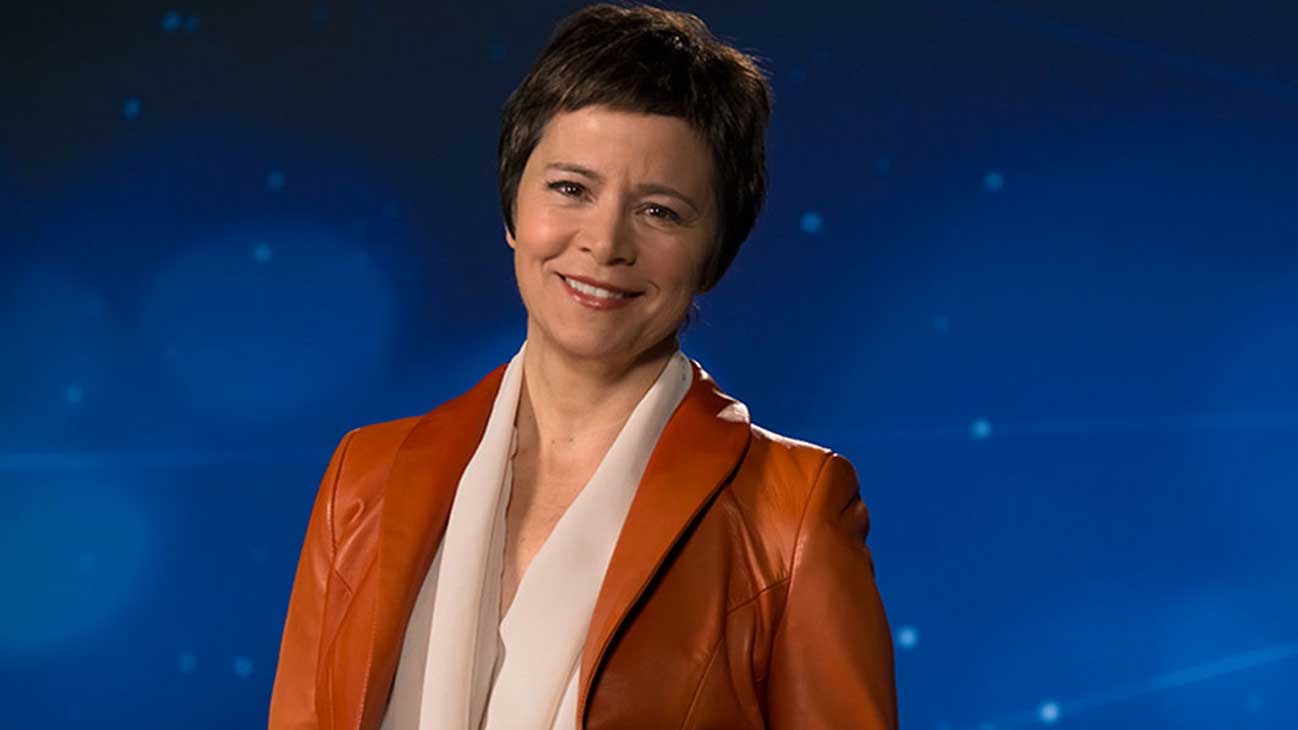Ann-Marie MacDonald is multiple award-winning author, actor, playwright, and broadcaster. The host of CBC TV’s DocZone, she is perhaps best known for her first novel, Fall On Your Knees, a critically acclaimed international bestseller. Taking the Commonwealth Prize, among many others, the book was also an Oprah’s Book Club selection. Speaking on a range of topics from human rights to creativity, Ann-Marie is equally at home conducting on-stage interviews and hosting a variety of events. The National Post sat down with Ann-Marie to talk about her newest novel, Adult Onset:
There’s still more than a hint of actor to Ann-Marie MacDonald. She’s sitting, for the time being, in a conference room at her publisher’s office, but the rise and fall of her energy — big, loud, banging-on-the-table explanations trade time with soft, quiet, conspiratorial thoughts — the just-so metaphors, the push and pull of attention, it all hearkens back to her start on the stage, even if it’s only to an audience of one.
“With this book, it’s almost as if I were a magician,” she explains, springing out her seat, outlining an invisible box on the table. “And it’s the ultimate magic trick. It’s opening up the magic box and saying, ‘Here’s how it’s all done.’ ”
She’s referring mainly to the rigorous self-examination that went into Adult Onset, just her third novel, but one that still follows in the imposing wake of the Giller-nominated The Way the Crow Flies and her international smash debut Fall On Your Knees. It’s a markedly different book in scope and setting than either of those, but you’ll recognize similar obsessions running through each. The most prominent one is family, more specifically the damage that its love and proximity can inflict.
Where that was filtered through the distance of history in both her previous novels, though, here the issues are much “closer to the bone,” as MacDonald puts it. Mary Rose MacKinnon (most people call her Mister), the book’s focus, is for all intents and purposes a thinly veiled MacDonald stand-in: a successful author (a YA fantasy almost-trilogy, in Mister’s case) turned mostly domestic (MacDonald still hosts Doc Zone regularly and acts on occasion) while raising the two kids she’s had with her same-sex partner, a noted theatre director (MacDonald’s partner Alisa Palmer currently runs the National Theatre School), in a downtown Toronto home (MacDonald now splits time between there and Montreal).
Beyond their analogues, Adult Onset also takes a remarkably small-potatoes focus, rolling through the head of Mister as she goes about an average week, fights over putting boots on and worries about cooking chicken mingling with memories that rush back and threaten to take over her life, even if they never actually swallow it whole.
“I wanted a story that, to the outside eye, nothing has changed, but internally, everything has,” MacDonald explains, seated once again. “I wanted the poignancy and the absurdity of the s–tstorm of the everyday week, where nothing happens and everything changes.”
This practised prosaicness lends an extra layer to the mixed-up intimacy of author and subject, and while MacDonald emphasizes the fictional aspect — “It’s always still a show,” she says, smiling — they do share a particular history, some leftover, family-caused wounds that, left untreated, threaten to scar her own children. It was a situation that gave the author — in this case, both the real one and the fictional one — occasion to pause.
“You do think, if you really seek to understand the imagery you go to over and over again, you worry about what you’re going to do to your creativity,” MacDonald admits, likening it to dissecting an animal to figure out how it works. “But I also want to live a life where I’m not ambushed from within. I want to know if something’s lurking, I want to be able to slow things down enough to see what’s there.
“I mean, how many mishaps do you have to have,” she continues, rolling her head for emphasis, “how many seemingly out of the blue screw-ups have to happen before you go, ‘You know what, I’m kind of participating in this’?”
In the book — and in a speech she gave to the Law Society of Upper Canada on the occasion of this year’s World Pride — the inciting incident is an email from her father, a reference to the It Gets Better videos of a few years ago that offered solace to queer teens (though it’s surely a message applicable to all of them). Again in both book and speech, MacDonald eventually comes back to her parents’ reaction when she first came out: Her mother wished she’d had cancer instead.
If the journey from there to acceptance was a big one for her parents, though, the journey from hearing that to accepting that acceptance was its own kind of massive undertaking.
“I think a lot about forgiveness,” she says, quiet and back in her chair. “Forgiveness is really a brutal process. It’s not a Hallmark process. To heal means you gotta face the injury, you gotta face that you were sick, you gotta face this gash right in the centre of you. To forgive, you have to acknowledge and believe and face the fact that you’ve been harmed, usually by someone you love and who loves you.
“Facing that and believing it doesn’t feel like forgiveness,” she says, shaking her head. “It feels like hatred and rage and spittle and snot and ugly emotions. But until and unless you go through that horrible journey, you can’t forgive. All you’re doing is papering over and moving on.”

